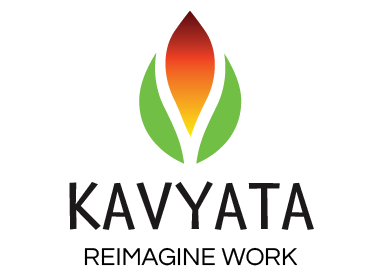
28 Nov 9 Point Career Change Checklist to help you evaluate your Career Change Decision
So you finally have a career change idea that makes your heart sing and your neurons fire up at the prospect of doing something challenging and exciting. Before you go the whole hog into making this career change idea a reality, just go over this 9 point career change checklist. In fact, we’ve broken down this career change checklist into categories of questions/checks which can help you ensure that you are not missing anything significant. We have got you covered!
Financial health
First on your career change checklist must be money matters!
1. Get the most important question out of the way first. Do you have a cushion of savings to tide you over the first 12-18 months of your career change? This is a question that needs to be tackled head on. Too many would be career changers either get paralysed with fear at this question or plunge into career change without thinking enough about it. Neither approach is ideal. Depending on the kind of career change you want to make, plan for at least 12-18 months of work being slow and money not coming in. So you would need to have a kitty of savings to see you through this phase.
 Your career change checklist should include taking stock of financial resources
Your career change checklist should include taking stock of financial resources
This holds true even if you are switching out of a role into another full-time role in a different domain. Chances are that you would need some ramp up time to start performing and delivering the goods in the new role. During this time, having savings cushions you against any unforeseen circumstances.
At the same time, don’t agonize over savings so much that you hold yourself back from making a career change. That may prove worse over the longer term. If you have a 12-18 month runway, then tick this item off your career change checklist.
Emotional readiness
2. Once you know you have your finances in place, next on the career change checklist is to look at the emotional angle of career change. Does the ‘new you’ you want to be through your career change, make you feel excited and a little nervous too? For many of us, what we do for a living and the work identity we have, say as a project management professional, sales manager, human resource manager etc, form a crucial part of how we see ourselves. Have you thought about and felt into the ‘new you’ you will become as a result of the career change and does this arouse positive emotions, even though it may be tinged with a little bit of fear and anxiety?
For instance, if you are shifting from being a full-time employee in a large corporate to becoming an independent consultant, how does the identity of independent consultant make you feel? Working independently, you may not have a title and the associated status from working in a large organization. You may also have to see yourself differently as you may no longer earn a stable high income, and your income may fluctuate.
3. Are you willing to be uncomfortable? Career change can involve seeing yourself very differently and struggling with a period when you don’t have the comfort of being viewed through a particular lens, say your title, your expertise in a particular domain, your affiliation to a particular organization. If this is a daunting prospect, then perhaps you are not yet ready for a career change.
For instance, one career changer we know, spoke about how she went through a period of having no identity – no job title or role to identify with and the added pressure of having to carve out what seemed like a very different identity (she moved from being a trainer and facilitator to then giving it up and becoming a crochet artist, specializing in home décor). The interim period between careers can have its struggles of trying out different identities and seeing which one fits and you have to be prepared for this discomfort. Check out this video
A career change checklist involves asking yourself, “Am I willing to be uncomfortable with the new identity or even lack of identity?”
Relational factors
Now moving onto the relational factors which you need to evaluate as part of your career change checklist.
4. How wide is your network? A career change can be tricky and in the worst possible scenario it may not work. If that happens, how quickly you can bounce back from it will depend on the strength of your network. If you happen to know only very few people, and mostly from exactly your organization/domain, chances are it becomes more difficult to retrace. And even if your career change decision takes off to a good start, sustaining the momentum and growing in your career, will require you to widen your network in a conscious and deliberate way.
 In your career change checklist, have you thought about your network and who is rooting for you?
In your career change checklist, have you thought about your network and who is rooting for you?
5. Do you have people rooting for you? Don’t get us wrong – we know that when you’re considering career change, chances are there will be a lot of naysayers. But having at least 1-2 people solidly rooting for you, will make a world of difference to you. They don’t have to be your family and friends. They could be people who believe in the power of your idea or a mentor that you have reached out to. And even if they don’t yet completely buy into your idea of career change, but are nevertheless encouraging of your attempt to try it out, then you know you have support. That counts for a lot.
Mental Preparation
A career change checklist is not complete without taking stock of your transferable skills and your learning and upskilling plan.
6. Do you know your transferable skills? If you don’t know what your transferable skills and if you can’t completely own the narrative around them, you still have some way to go before embarking on your career change idea. Every role helps you build a solid set of transferable skills (usually soft skills and in some cases technical / hard skills).
To know your transferable skills, first identify the common skills needed for the switch from your current and past experience – write them down and build the narrative on how precisely they will be applied to the new role.
Read more – How you can build your Personal Brand, including learning to identify and flaunt your transferable skills.
Second, identify the skills that make you different. Write them down and FLAUNT them – you will be the only one in the team with a diverse perspective and potential for innovation. And third, confidently demonstrate capability to learn and research to pick up technical skills. Your experience cannot be replicated and that is exactly why they should hire you and nobody else.
7. Are you willing to learn and have you carved out a learning plan? Career change can require significant reskilling or upskilling and it’s crucial to have a learning plan in place to ensure this happens.
Have you identified what you will need to learn to plug the skills/knowledge gaps?
Have you created a learning plan including setting aside resources (time, money) for investing in your learning?
 Include your learning plan in your career change checklist
Include your learning plan in your career change checklist
8. Do you know where and how you will get your early small wins? Often times, a career change into a new skill area, new domain can make you feel like you have to start all over again. Even though you bring a solid set of transferable skills, you will have to prove your capability. And this is not only for others, it is important for you to have some small early wins, which can give you the confidence and surge of hope and excitement to stay the course, because re-establishing yourself after a career change is hard work.
Be sure to set small and realistic measures of progress in your new career, and that will help you take the career change decision with greater surety. For instance, if you are moving out of a technical lead role in a software company and starting a new independent role as an Agile coach, have you identified 2-3 initial potential clients?
Energizers
A little overlooked but nevertheless very important part of your career change checklist is to understand your energizers.
9. Are you investing in your energy? The process of career change can be demanding and intense.
Do you know what brings you mental, emotional and physical energy and are you engaging in enough of these? Like carving out time to pursue your interests, even in a small way, spending time with friends and family and making time to exercise?

Kavita, an alumna of IIM Ahmedabad, brings 20 years of experience in Experiential Learning, Coaching, Personal Growth & Change. Her forte is Career Transition Coaching and Leadership Development for mid-senior individuals, helping them find success and fulfilment at work . She also teaches Career & Self Development courses at leading management institutes including IIM Kozhikode, IIM Udaipur, IIM Indore and at the IITs.

